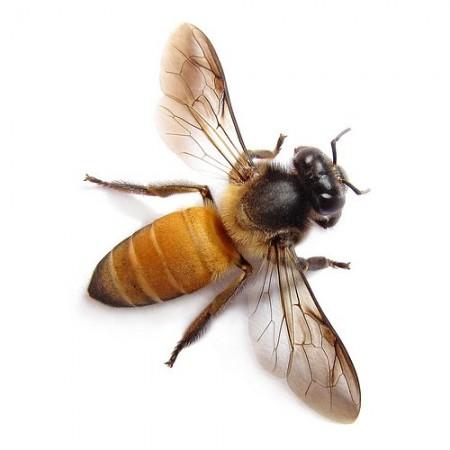
Honey bees can help detect early stages of cancer, shows a new research.
For this purpose, Portuguese designer Susana Soares has developed an equipment made of glass. The device with two chambers uses specially trained honey bees to diagnose cancer from the patient's breath. The insects are placed in the big chamber of the device and the patient is asked to exhale into the smaller chamber. On detecting cancer from the patient's odour, the bees will enter the small chamber (Click here to see the picture.)
Interestingly, training honey bees is not a big task. Soares said that the training takes hardly ten minutes, Daily Mail reported.
"Bees can be easily trained using Pavlov's reflex to target a wide range of natural and man-made chemicals odours including the biomarkers associated with certain diseases," Soares, wrote on her website. "The training consists in baffling the bees with a specific odour and feeding them with a solution of water and sugar, therefore they associate that odour with a food reward."
Soares said that the trained honey bees are capable of sniffing out a range of deadly diseases, including cancers of lungs, skin, tuberculosis and diabetes.
The findings were presented at the Dutch Design Week, last month.
Using animals and insects to detect diseases or dangerous objects have been prevalent from some time.
In April, authorities at the Heathrow Airport made headlines by using honey bees to detect explosives. In August, a team of researchers from the University of Pennsylvania's Working Dog Center trained dogs, particularly German Shepherds and retrievers, to detect ovarian cancer.

















